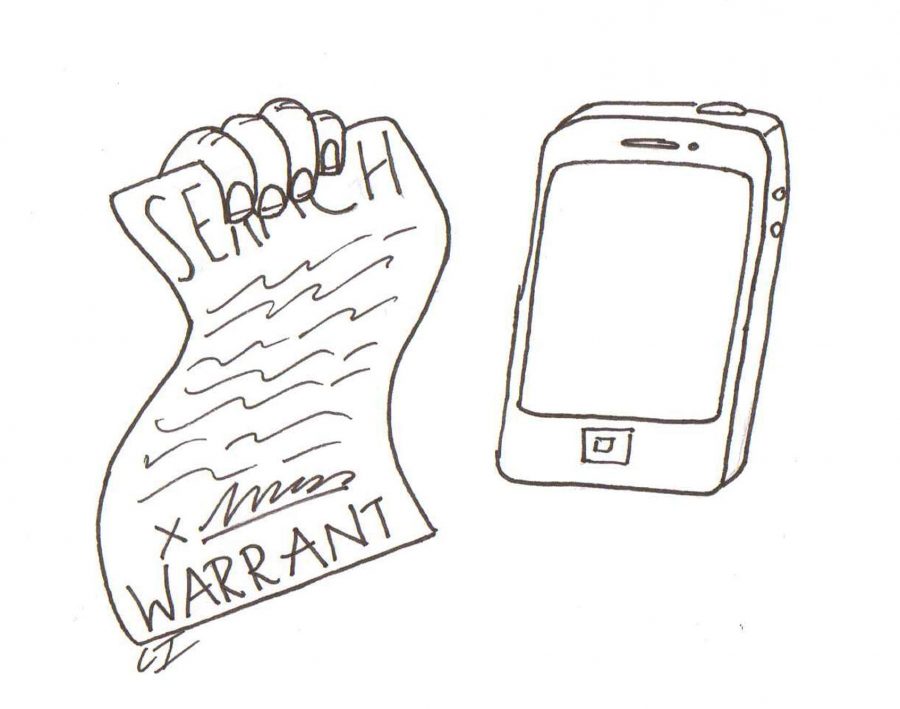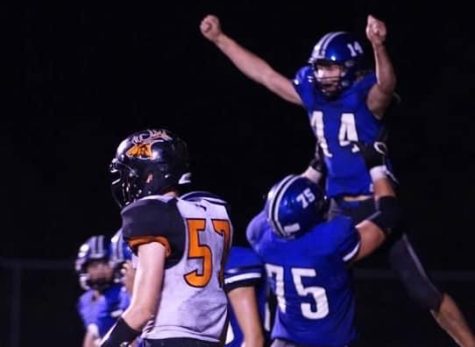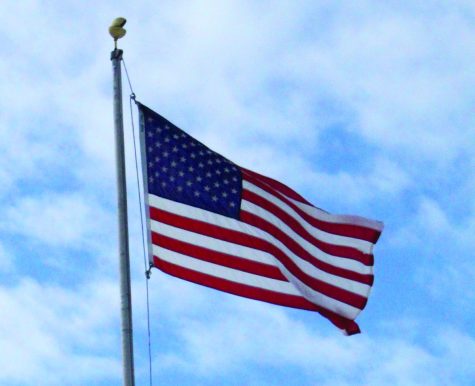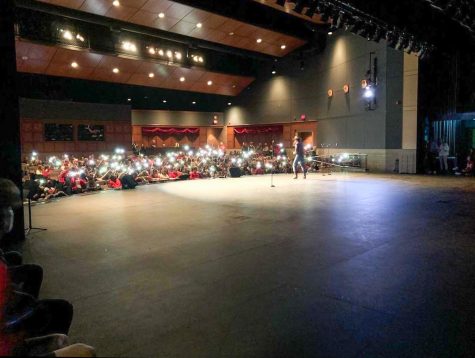Phone history checks should not require warrant
February 20, 2014
Recently the United States Supreme Court has agreed to take on two cases that will answer the question of whether a warrant-less search of a cellphone in relation to a person’s arrest is unconstitutional. Police should not need to obtain warrants to search certain content of the cellphones of people that they have arrested, but the Supreme Court should rule that the search of the phone in the case Riley vs. CA was unconstitutional.
The cellphone has become a more deeply ingrained part of our lives in the past couple of years. Our phones are carrying more personal information on them than ever before. Things like contacts and call logs are now packed in with our e-mails, texts, pictures and even social media outlets. The Supreme Court’s decision will depend on whether searching that vault of information violates the Fourth Amendment of the Constitution.
As an oral argument on the United States Court of Appeals website on the U.S vs. Wurie Brima case reported. Brima, was seen dealing with a man who was found to have crack cocaine on his person. The man then told the police Brima sold him the drugs. Then the police arrested Brima, and after Brima’s personal items were confiscated the police searched his phone found an address, searched it with a warrant and found more incriminating evidence.
The search of his phone should be looked at with scrutiny. The only thing the police took from his phone was a phone number that was calling the cell phone repeatedly. The rest of the evidence was obtained with a warrant, not to mention the first accusation was reached through the person Brima dealt the drugs to.
In the other case, Riley vs. CA, more personal information was used to convict the sus[ected criminal. The Washington Post reported that the police used both photo and video evidence from Riley’s phone without a warrant to convict him of a drive by shooting committed days prior to his arrest.
In this case the phone was searched for more personal information and should be looked at differently than the case involving Brima. The fact that the police did not procure a warrant to search the phone for more personal items and the files were used as evidence to convict Riley. The results of the investigation don’t excuse the fact that they breached his more personal information on his phone without a warrant.
Back in 2012 CBS reported that in a case named United States Vs Abel Flores-Lopez that the search of his three cellphones on his person for its phone number was constitutional. This was because argument that they only searched for the phone’s number to then obtain more information. The rest of the phones content was left untouched.
In this case Flores-Lopez was arrested in a drugs bust. Him being arrested in after he was caught doing a criminal activity should allow for the police to search his phones. Especially since a police informant had previously told the police Lopez was using the phone to discuss the deal.
National Public Radio reported that 40 years ago the Supreme Court ruled that things carried on an arrested person can be searched to check for concealed weapons as well as to prevent the destruction of evidence, but with that ruling being before the electronic age, they’re reconsidering that past decision. In all honesty the search of the content in a cell phone such as photos pictures and social media should not be considered constitutional and should require a warrant. However, search of a phone number or even a search of the call log when a person is arrested and the police have enough evidence to prove there was a reason to later in court.
In conclusion, the police should be able to search a smartphone if the person is arrested and there is evidence that they have committed a crime prior to the search of the phone. Still, the courts should see acts of searching through more personal data as unconstitutional due. The Court will hear oral arguments in April and give their ruling in June.












